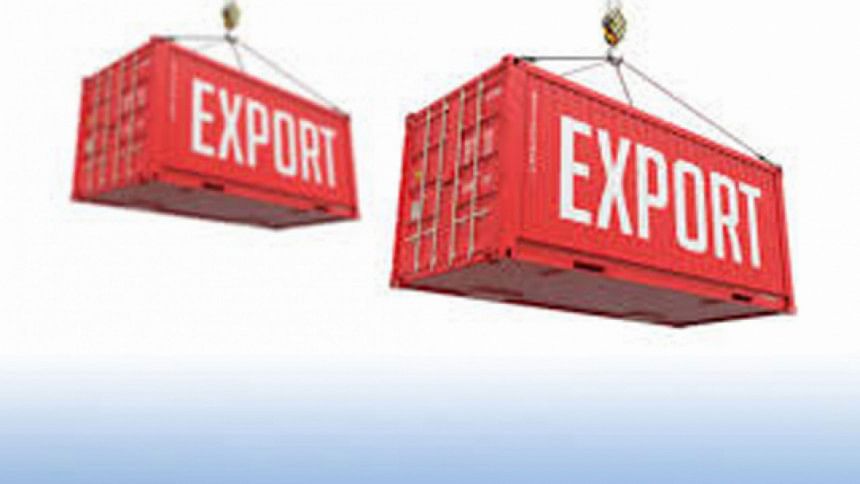
Bangladesh Bank has opened a can of worms with its revision of the balance of payment data. There is no better way to put it.
It turns out that exports, too often billed as the shining light of the Bangladesh economy, were not as outstanding over the years as they were made out to be by the official government statistics.
As is standard practice, export data is recorded when the consignment is cleared by the customs for shipment.
But in Bangladesh, three different government bodies were recording the export data: the Export Promotion Bureau, the commerce ministry wing responsible for developing the nation’s exports; the National Board of Revenue by way of customs; and the Bangladesh Bank, which logs in the actual proceeds from the shipments.
In theory, all three approaches should lead to more or less similar figures. In reality, the three yielded different numbers.
But, it was the Export Promotion Bureau’s data, which showed the rosiest picture, that was published as the official export figures. Why did the EPB’s methodology yield the highest number of the three? There were too many incidences of double or triple counting the same consignment.
Now, on the insistence of the International Monetary Fund, Bangladesh has decided to go with the customs data as the official export figure — as it should have been the case always.
This correction has answered an important riddle: despite reports of solid showing in the export market month in and month out, why was the foreign currency reserves not bouncing back?
At the same time, the dwindling dollar stockpile was not due to rampant capital flight through trade mis-invoicing: the discrepancy between the NBR data and the central bank data is not too wide.
More importantly, the balance of payment adjustment has raised a few uncomfortable questions.
Was there no oversight on the EPB’s data collection practice? Why did the EPB and the NBR not sit down at the close of a fiscal year to reconcile their entries? Who should be held responsible for this scandal? Or, was this intentional all along and the authorities are doing a mea culpa now that they were caught by the IMF?
The event also gives rise to a bigger existential question: was the oft-peddled narrative of Bangladesh being an economic star performer over the past decade or so a sham?
Exports and remittance are the two big drivers of the Bangladesh economy. The stellar GDP growth reported over the years was pinned on the impressive growth registered by the two sectors.
Surely, Bangladesh’s actual GDP is markedly lower than what was reported all this while. About one-third of the country’s GDP comes from industrial output, which is dominated by merchandise for the export market.
This also raises another question: is Bangladesh really ready for graduation from the least-developed country bracket in 2026?
Bangladesh’s LDC graduation was determined by its economic performance and now that it needs revision, surely the scheduled timeframe for graduation should be calibrated too.
With graduation from the LDC bracket, Bangladesh will lose all the trade benefits it currently enjoys. With the trade privileges, Bangladesh’s exports flattered to deceive. Will the exporters be able to manage without it? Can the Bangladesh economy afford a further drop in exports?
There must be serious stock-taking by the Awami League government of more than 15 years to this end.
And yet, the biggest damage the readjustment of the balance of payment data has done is not material — there is no change in the net balance of payment and foreign exchange reserve scenarios — but psychological: it raises questions on the credibility of all data provided by the government.
If the export data was inflated, what about the other components of the economy? What about the reported progress on poverty alleviation and remarkable gains made in social development indicators?
All the achievements made over the past decade will be called into question — all that glitters may not be gold.
Acknowledgement is the first step to recovery. Now that the government has admitted its mistake, it must call for re-computation of all official records connected to export data.
At the very least, the past GDP figures must be reset. Other than regaining the lost credibility, there is another silver lining: Bangladesh’s tax-GDP ratio, which has long been among the lowest in the world and often touted as an Achilles heel of the economy, would most definitely improve to a decent number.
There is another gain to be had with the resetting of the GDP figure, which would entail a massive swallowing of pride for the current government.
A sizeable portion of Bangladesh’s sovereign debt portfolio is non-concessionary due to its reported GDP figure. Interest payments on those loans are progressively turning out to be an albatross around the government’s neck.
Things can only look up from here onwards if the government takes the episode as a sobering lesson.
daily star









